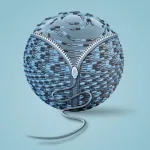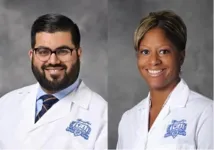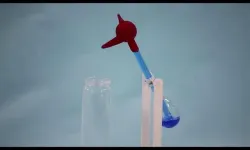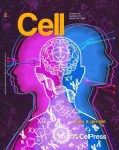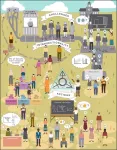(Press-News.org) The first call for applications for the FRONTIERS journalist residencies closed on 5 March 2024 and attracted 33 submissions. The competition was open to any science journalist interested in a residency of three to five months at a research institution in the EU or associated country. Applications will now be evaluated by a committee composed of members of the FRONTIERS consortium and its Advisory Board.
In this first round of submissions, journalists from five continents applied for residencies at host institutions in thirteen different countries. There were applications from experienced journalists and junior ones with journalistic projects in all scientific domains.
The results of the selection process are scheduled to be announced in May 2024. New applicants and unsuccessful applicants will be invited to apply in the second call, which is set to open later this year.
FRONTIERS, the ERC-funded science journalism initiative
In early 2023, the European Research Council (ERC) selected the FRONTIERS project for its Science Journalism Initiative. The project provides science journalists with the opportunity to cover frontier science topics from within research institutions, ensuring total journalistic independence. FRONTIERS aims to tackle some of the challenges of science journalism, including the deteriorating employment conditions and resources available for science journalists.
The FRONTIERS project is run by a consortium of organisations that includes the Centre for Ethics in Science and Journalism (Italy), the NOVA University of Lisbon (Portugal), the Science, Communication and Society Studies Centre of the Pompeu Fabra University (Spain), and Enspire Science (Israel), which coordinates the project.
For more information on the FRONTIERS project and updates on the selection process, please visit www.frontiers.media.
For media inquiries, please contact:
Main Contact:
Email: info@frontiersmedia.eu
Other Contact Points:
Name: Yoram Bar-Zeev
Organisation: Enspire Science
Email: projects@enspire-science.com
END
First call of the FRONTIERS residency program receives 33 applications from science journalists
The competition was open to any science journalist interested in a residency of three to five months at a research institution in the EU or associated country
2024-03-14
ELSE PRESS RELEASES FROM THIS DATE:
How does the body avoid that multiple sperm fertilize an egg?
2024-03-14
With the help of the ESRF, researchers from Karolinska Institutet (Sweden) have discovered the reproductive mechanism that permanently blocks polyspermy — a pathologic condition that arises when more than one sperm fuses with the egg, and which is lethal for embryo development. They also revealed the atomic architecture of the egg coat, which explains a set of genetic mutations causing infertility and it could make an impact in the development of non-hormonal contraception. The results are out in the journal Cell.
Infertility ...
ASU Biodesign institute scientist Hao Yan receives prestigious Humboldt Research Award
2024-03-14
Hao Yan, director of the Biodesign Center for Molecular Design and Biomimetics at Arizona State University and the Milton D. Glick Distinguished Professor within ASU’s School of Molecular Sciences, has been honored with the Humboldt Research Award by the Alexander von Humboldt-Stiftung Foundation.
This prestigious $65,000 award acknowledges Yan's extensive achievements in research and education.
"The institute is thrilled that the Humboldt Society is honoring Hao for his pathbreaking research and outstanding contributions as a mentor to young scientists,” says Joshua ...
Henry Ford Health cardiologists lead national study on novel bleeding monitoring system
2024-03-14
DETROIT (March 14, 2024) – Interventional cardiologists at Henry Ford Hospital led a national multi-center clinical study, dubbed the “SAFE-MCS” study, that evaluated the safety of complex high-risk percutaneous coronary intervention (PCI) using mechanical circulatory support (MCS) and surveillance with the Early Bird® Bleed Monitoring System (EBBMS).
PCI is a non-surgical procedure used to treat the blockages in a coronary artery that opens narrowed or blocked sections of the artery, restoring blood flow to the heart.
“This study is the first ...
Ecology: Increasing sea temperatures associated with higher bull shark abundance
2024-03-14
Increasing sea surface temperatures over the past 20 years in Mobile Bay — an estuary in the US state of Alabama — have coincided with five-fold increases in the abundance of juvenile bull sharks (Carcharhinus leucas), according to a study published in Scientific Reports.
Bull sharks are found globally in warm, shallow coastal waters in both fresh and saltwater environments. They help balance and maintain the health of coastal ecosystems by regulating prey populations. Along with great white shark (Carcharodon carcharias) and tiger shark (Galeocerdo cuvier), they are among the shark species that are most like to negatively interact with humans.
Lindsay ...
New study examines if ‘inoperable’ pancreatic tumors can be safely removed
2024-03-14
LOS ANGELES — A clinical trial from Keck Medicine of USC aims to provide a surgical solution for patients with a form of advanced pancreatic cancer previously considered inoperable.
The study will investigate if chemotherapy followed by a novel type of surgery to remove the cancer is a safe and effective option for patients with locally advanced pancreatic cancer, meaning that the cancer has not spread to other organs, but has grown into or close to nearby blood vessels that surround the pancreas.
“Usually, these types of tumors cannot be ...
Terminator-style robots more likely to be blamed for civilian deaths
2024-03-14
Advanced killer robots are more likely to blamed for civilian deaths than military machines, new research has revealed.
The University of Essex study shows that high-tech bots will be held more responsible for fatalities in identical incidents.
Led by the Department of Psychology’s Dr Rael Dawtry it highlights the impact of autonomy and agency.
And showed people perceive robots to be more culpable if described in a more advanced way.
It is hoped the study – published in The Journal of Experimental Social Psychology ...
An electricity generator inspired by the drinking bird toy powers electronics with evaporated water
2024-03-14
Inspired by the classic drinking bird toy, scientists in Hong Kong and Guangzhou, China have developed an engine that efficiently converts energy from water evaporation into electricity to power small electronics. The device produces energy outputs exceeding 100 volts—much higher than other techniques that generate electricity from water—and can operate for several days using only 100 milliliters of water as fuel, according to a study published March 14 in the journal Device.
“The drinking bird triboelectric hydrovoltaic generator offers a unique means to power small electronics in ambient ...
Cell focus issue explores sex and gender in science
2024-03-14
Cell, the flagship biology journal of Cell Press, presents a landmark issue on sex and gender in science. It includes a collection of articles on topics related to strategies for promoting gender equality in academia, enhancing rigor in the study of sex-related variables, and supporting transgender researchers. The special content, scheduled to appear online on March 14, 2024, also discusses the past, present, and future of research on sex and gender.
To mark the occasion, Cell Press’s parent company, Elsevier, is announcing updated guidelines on reporting ...
Transgender scientists speak up about the challenges they face in academia and share how to support them
2024-03-14
A group of 24 transgender (and/or family members of transgender) scientists describe what it’s like to be a transgender person in STEMM. In a commentary publishing on March 14 in the journal Cell, they discuss the historical origins of trans marginalization, explain how this affects trans people’s careers in science and medicine, and lay out actions that cisgender individuals and institutions can take to support trans people in STEMM.
This first-of-its-kind commentary appears in a sex and gender focus issue of Cell, covering topics such as gender equity, the history ...
Sleep-wake rhythm: Fish change our understanding of sleep regulation
2024-03-14
Contrary to common belief, not all vertebrates regulate their sleep-wake rhythm in the same way. University of Basel researchers have discovered that some fish – unlike humans – do not need orexin to stay awake. This molecule was thought to be necessary for normal wake and sleep rhythms in vertebrates. Humans without orexin suffer from narcolepsy.
Until recently, it was assumed that vertebrates share similar mechanisms controlling sleep behavior. That's why researchers have been using fish in the past 20 years as a model organism to study sleep ...
LAST 30 PRESS RELEASES:
Molecular glue discovery: large scale instead of lucky strike
Insulin resistance predictor highlights cancer connection
Explaining next-generation solar cells
Slippery ions create a smoother path to blue energy
Magnetic resonance imaging opens the door to better treatments for underdiagnosed atypical Parkinsonisms
National poll finds gaps in community preparedness for teen cardiac emergencies
One strategy to block both drug-resistant bacteria and influenza: new broad-spectrum infection prevention approach validated
Survey: 3 in 4 skip physical therapy homework, stunting progress
College students who spend hours on social media are more likely to be lonely – national US study
Evidence behind intermittent fasting for weight loss fails to match hype
How AI tools like DeepSeek are transforming emotional and mental health care of Chinese youth
Study finds link between sugary drinks and anxiety in young people
Scientists show how to predict world’s deadly scorpion hotspots
ASU researchers to lead AAAS panel on water insecurity in the United States
ASU professor Anne Stone to present at AAAS Conference in Phoenix on ancient origins of modern disease
Proposals for exploring viruses and skin as the next experimental quantum frontiers share US$30,000 science award
ASU researchers showcase scalable tech solutions for older adults living alone with cognitive decline at AAAS 2026
Scientists identify smooth regional trends in fruit fly survival strategies
Antipathy toward snakes? Your parents likely talked you into that at an early age
Sylvester Cancer Tip Sheet for Feb. 2026
Online exposure to medical misinformation concentrated among older adults
Telehealth improves access to genetic services for adult survivors of childhood cancers
Outdated mortality benchmarks risk missing early signs of famine and delay recognizing mass starvation
Newly discovered bacterium converts carbon dioxide into chemicals using electricity
Flipping and reversing mini-proteins could improve disease treatment
Scientists reveal major hidden source of atmospheric nitrogen pollution in fragile lake basin
Biochar emerges as a powerful tool for soil carbon neutrality and climate mitigation
Tiny cell messengers show big promise for safer protein and gene delivery
AMS releases statement regarding the decision to rescind EPA’s 2009 Endangerment Finding
Parents’ alcohol and drug use influences their children’s consumption, research shows
[Press-News.org] First call of the FRONTIERS residency program receives 33 applications from science journalistsThe competition was open to any science journalist interested in a residency of three to five months at a research institution in the EU or associated country
